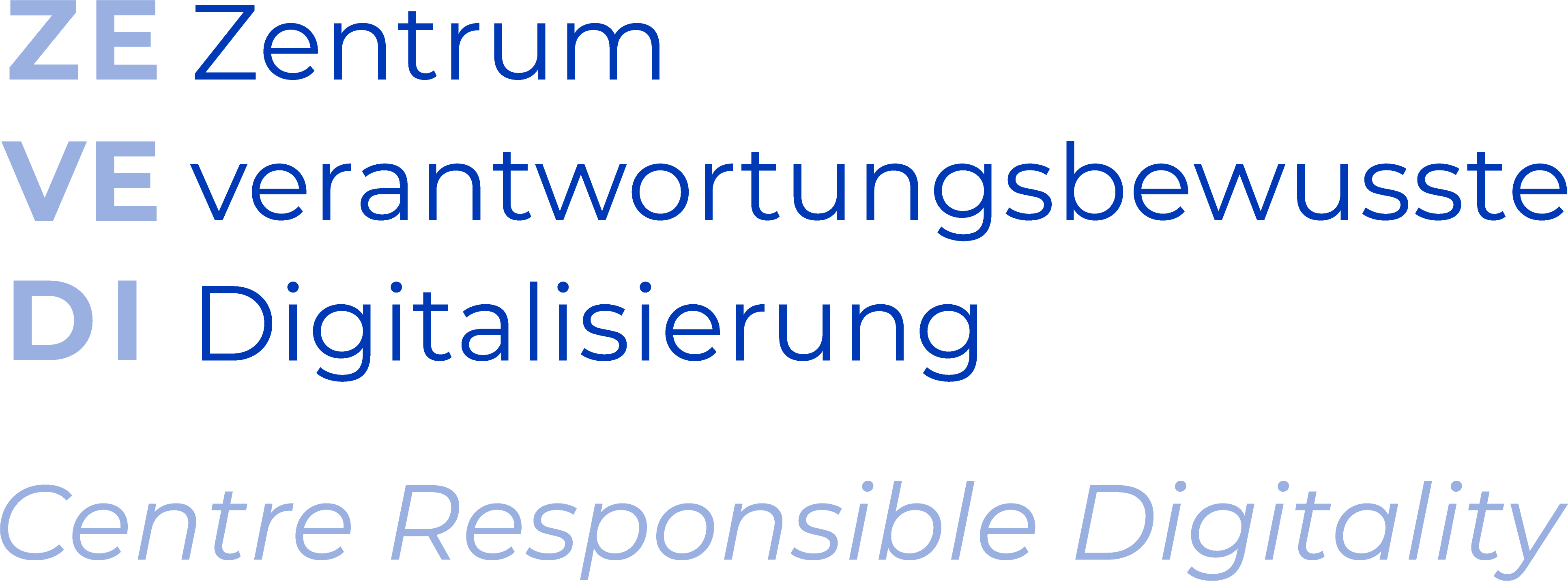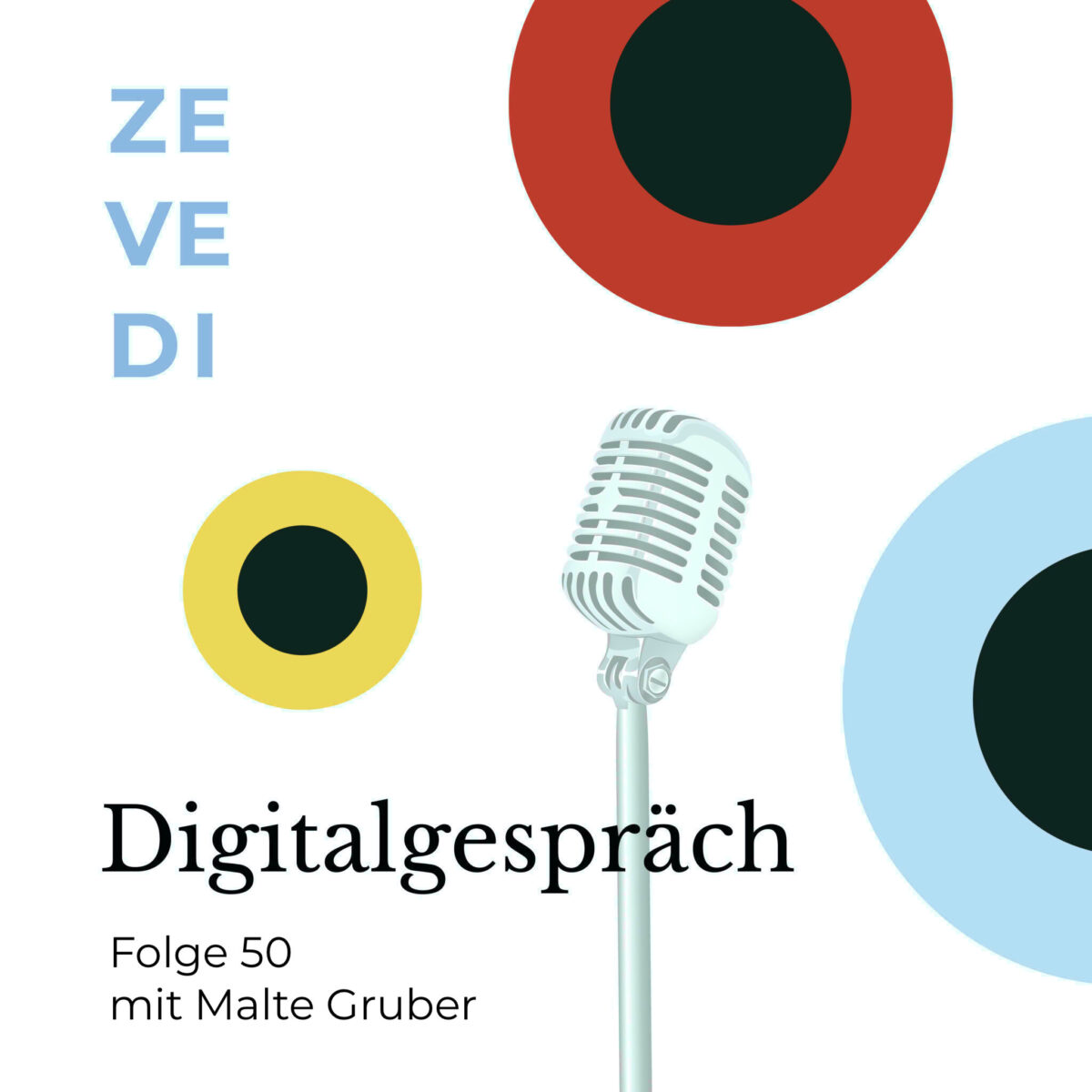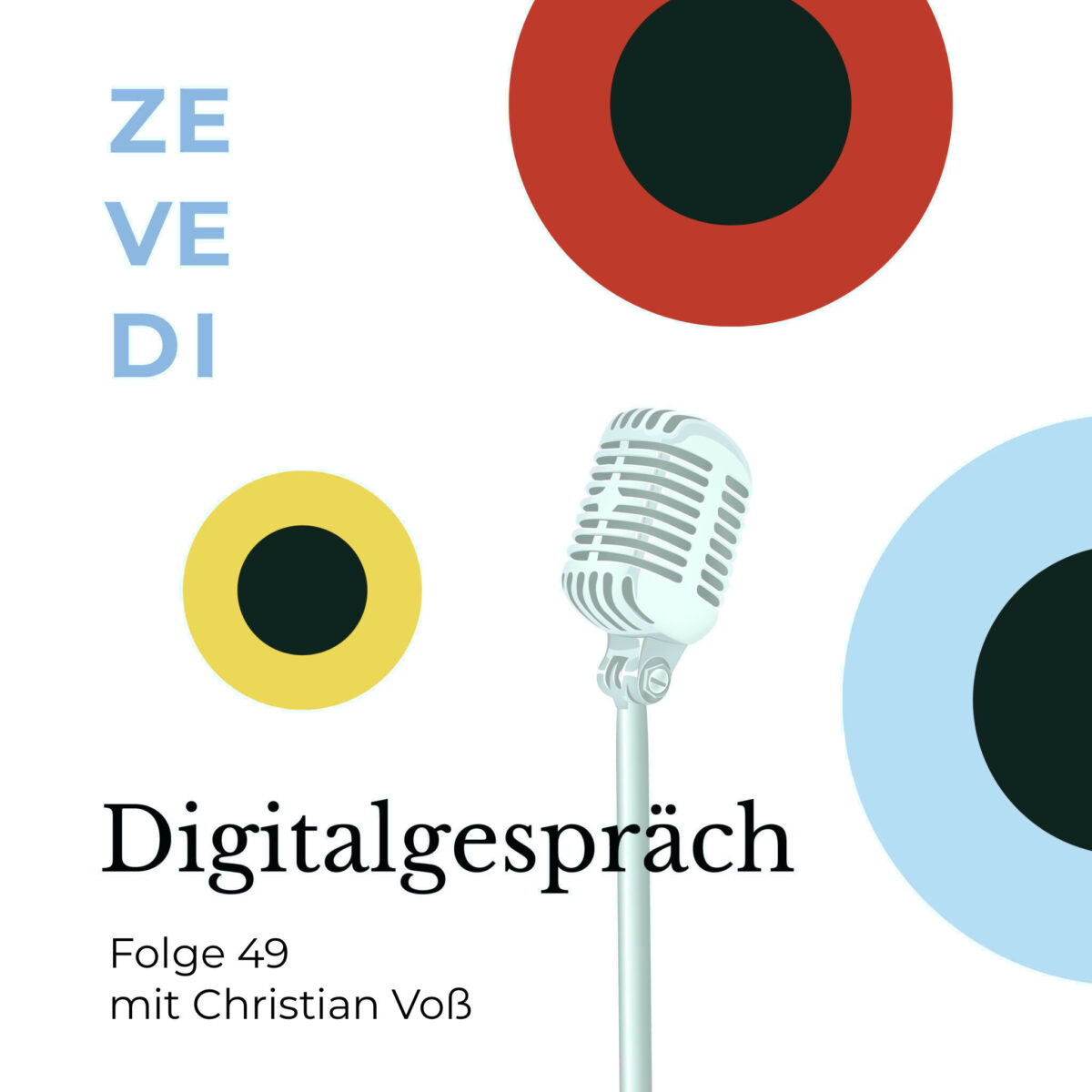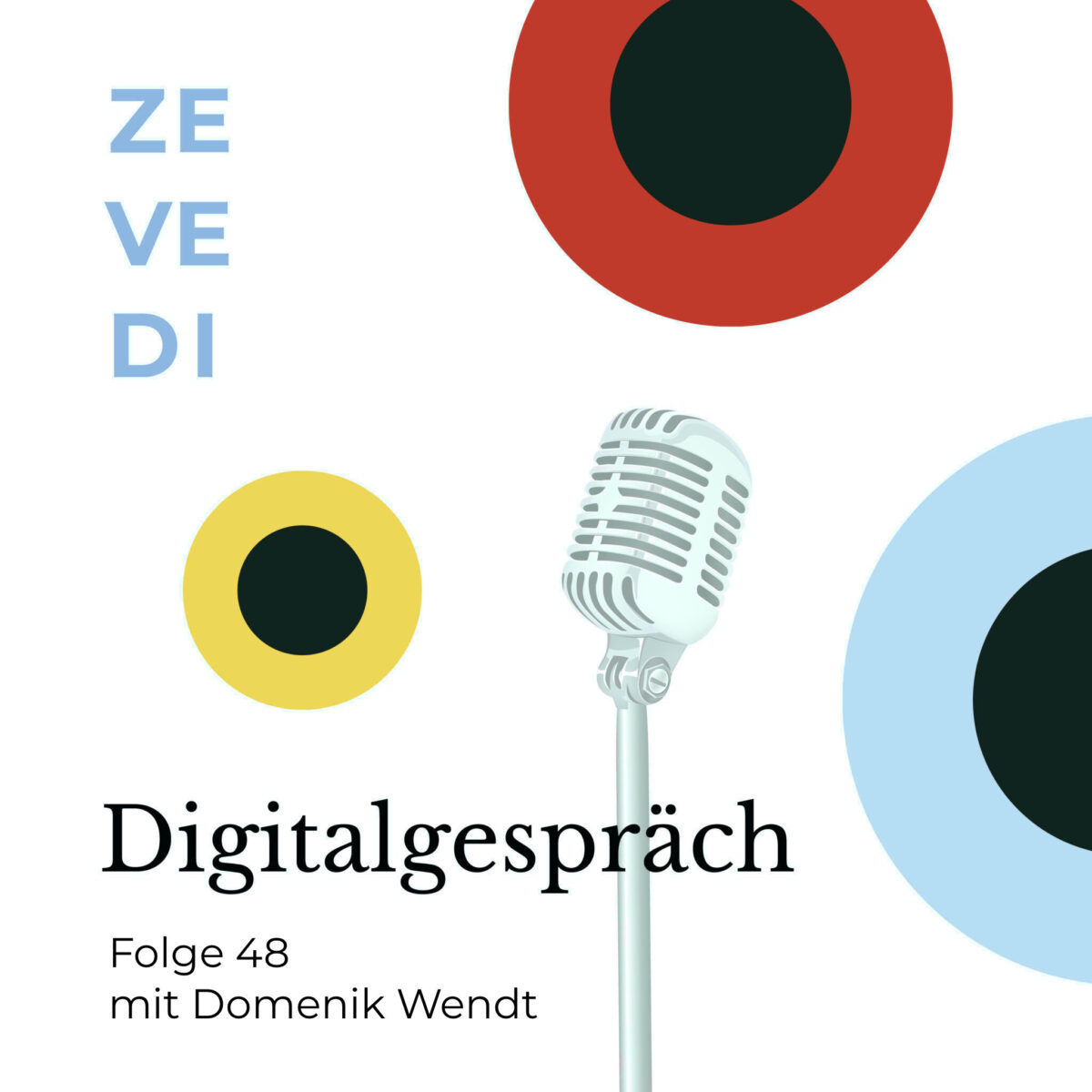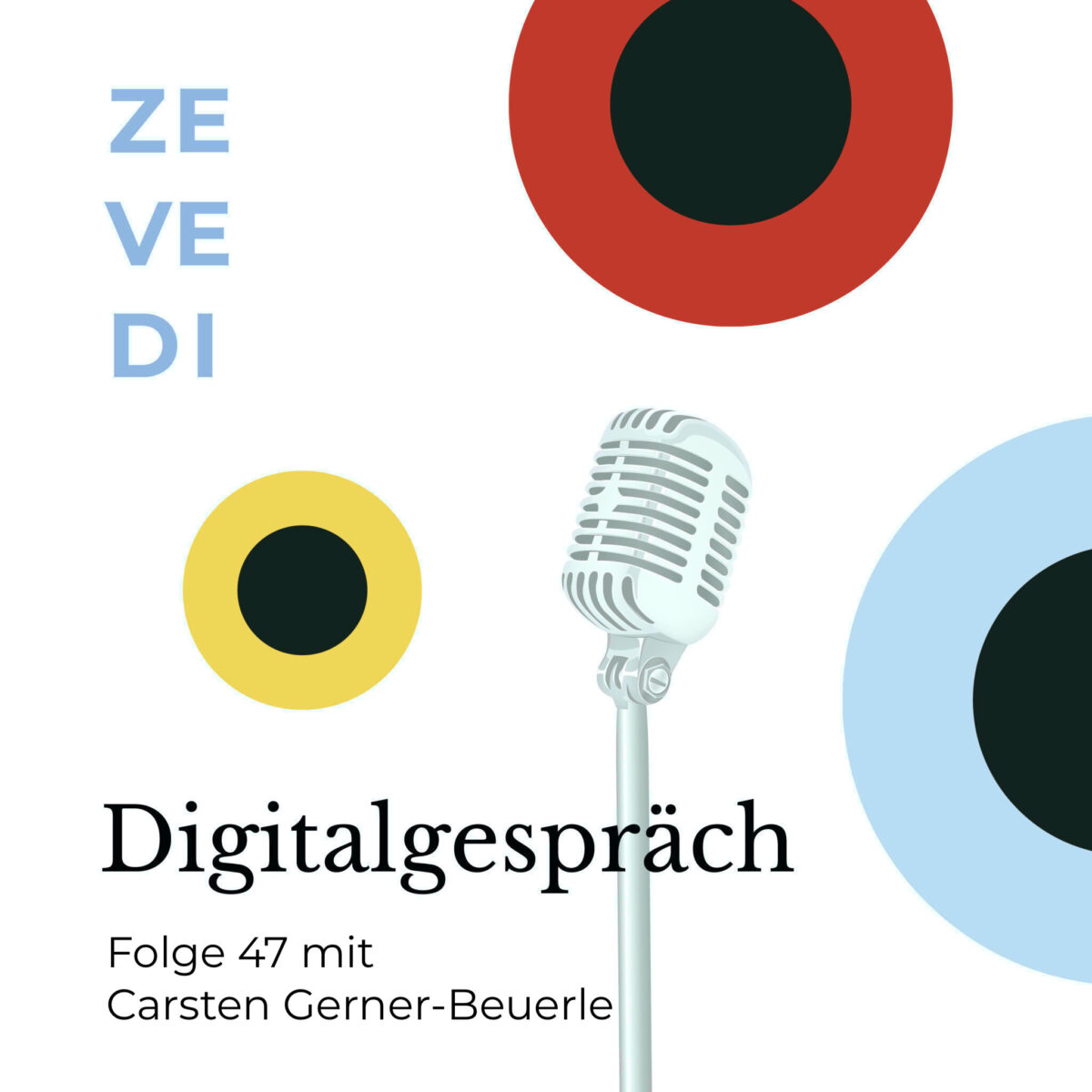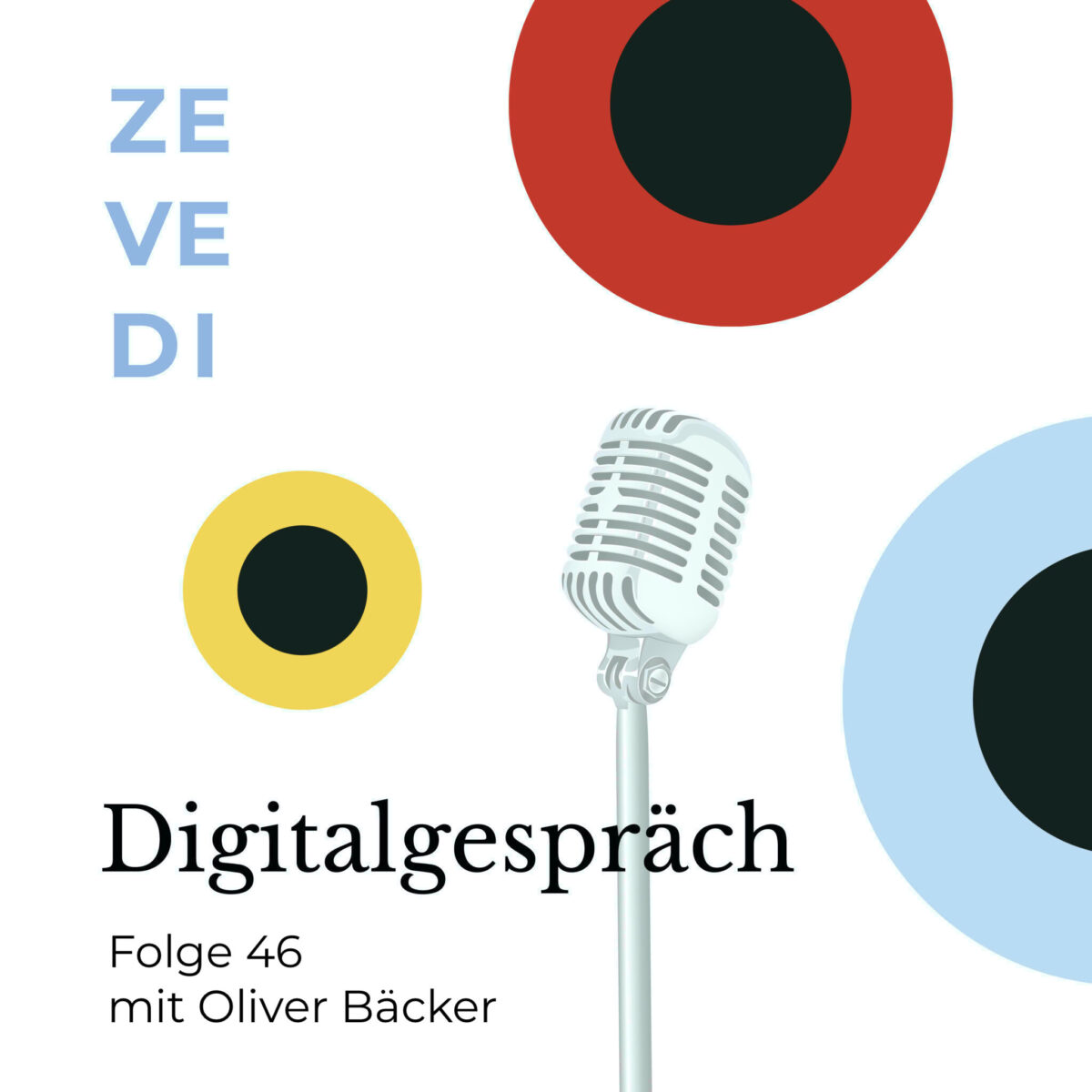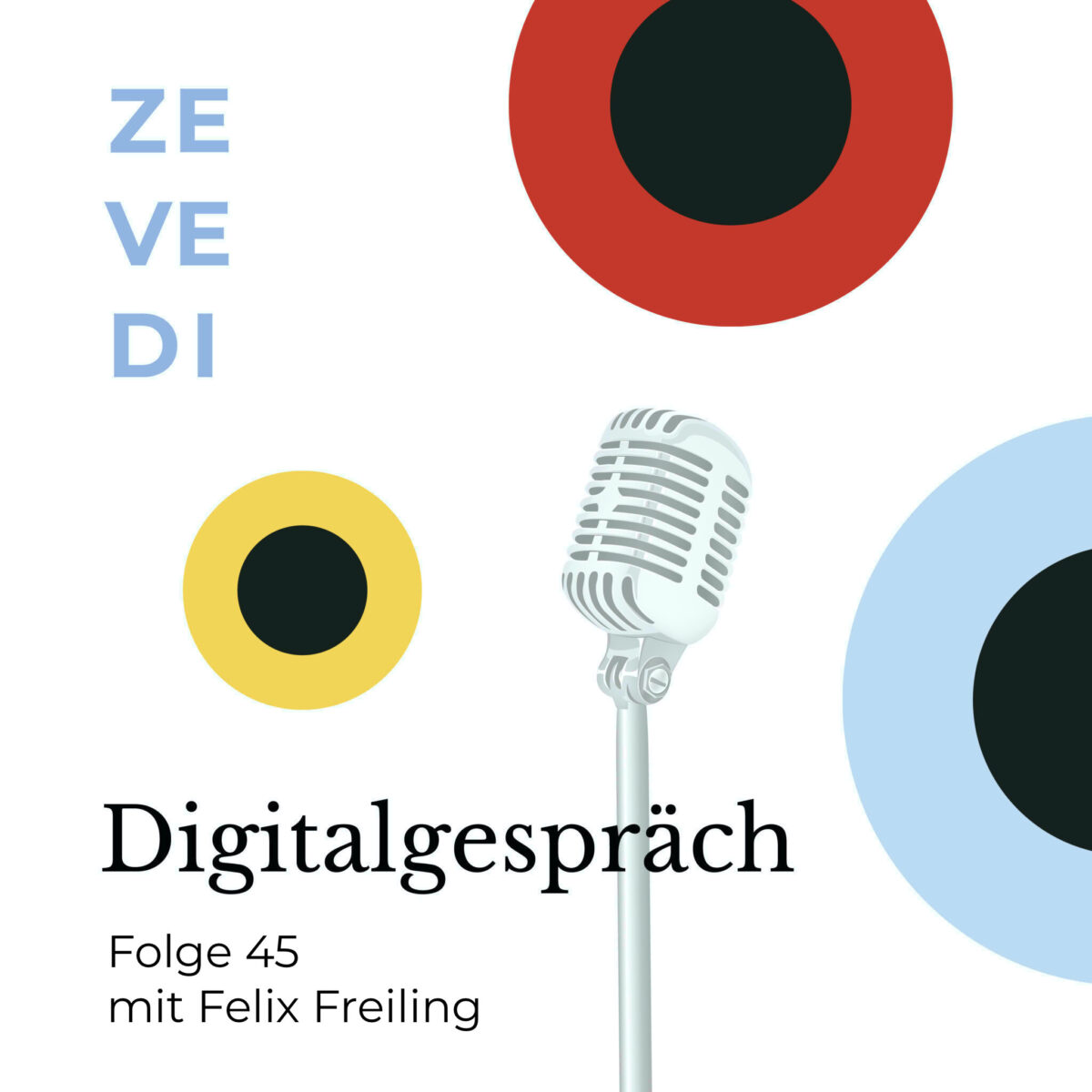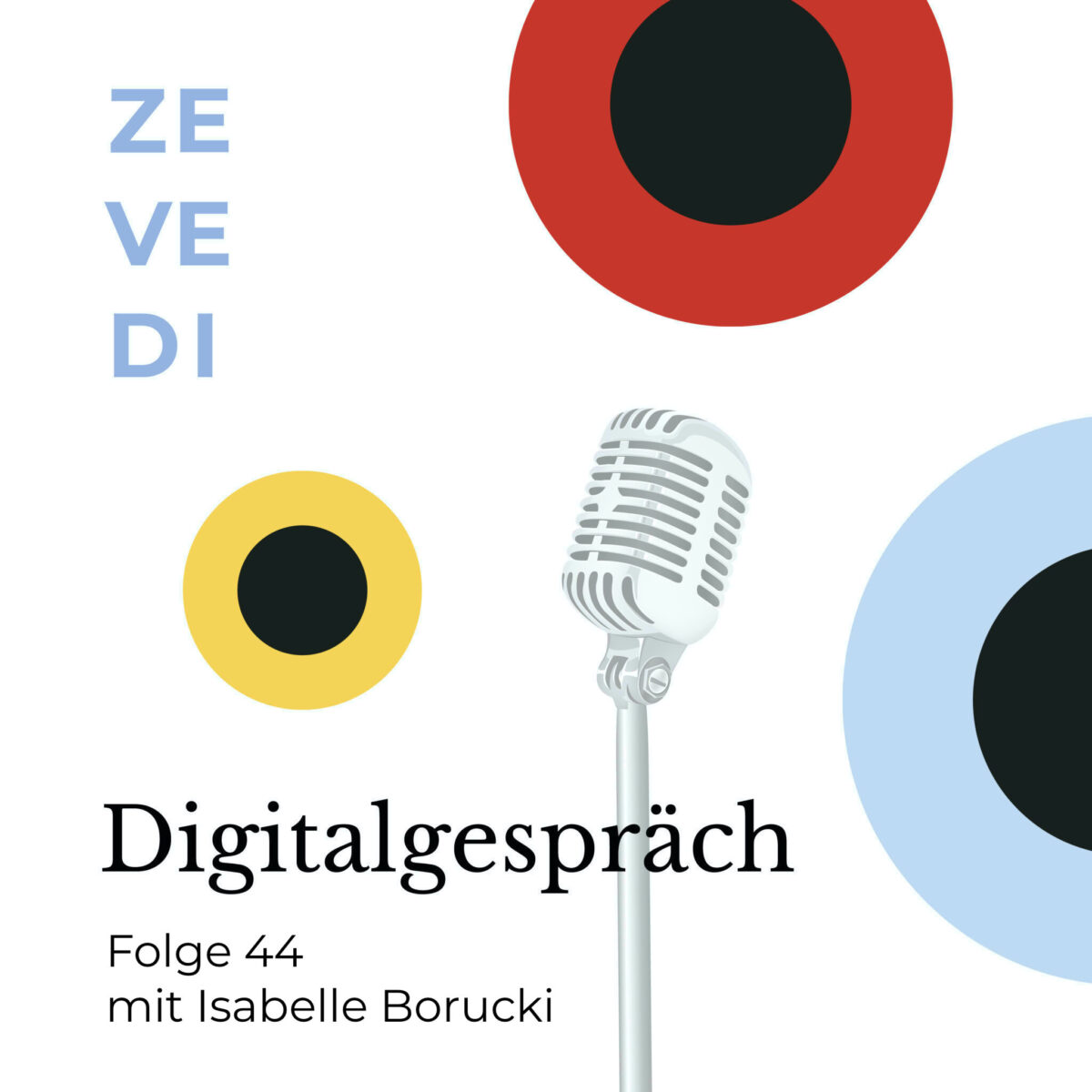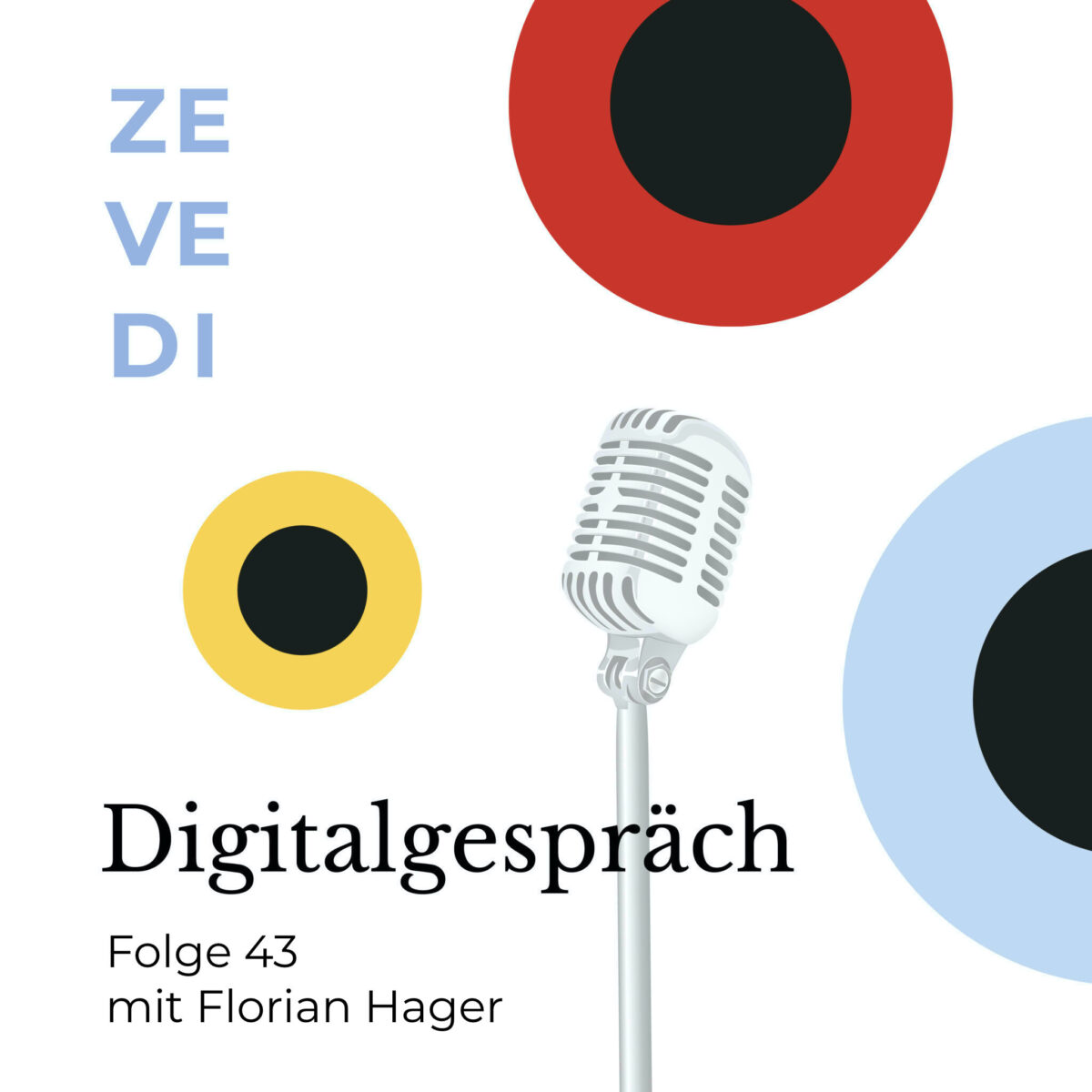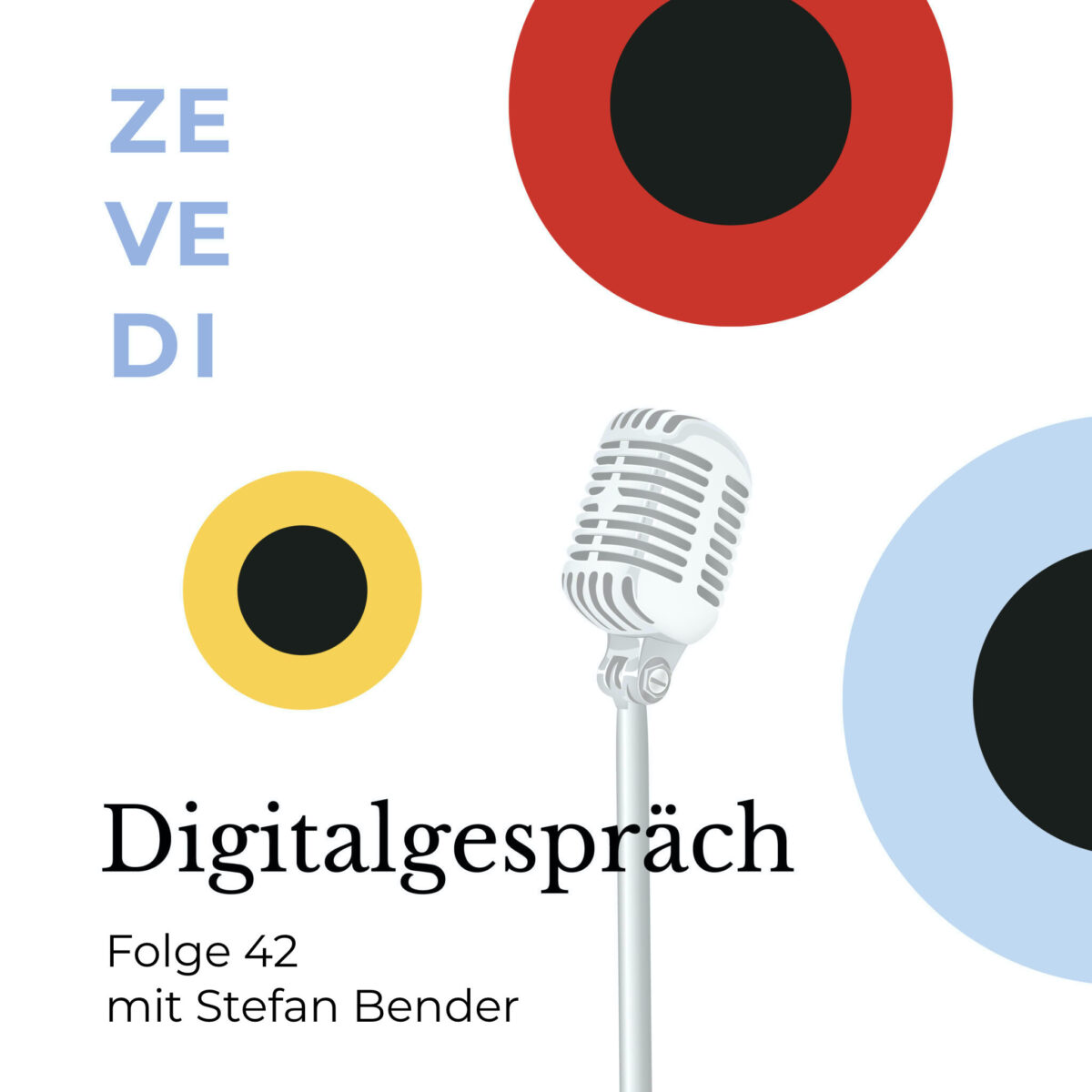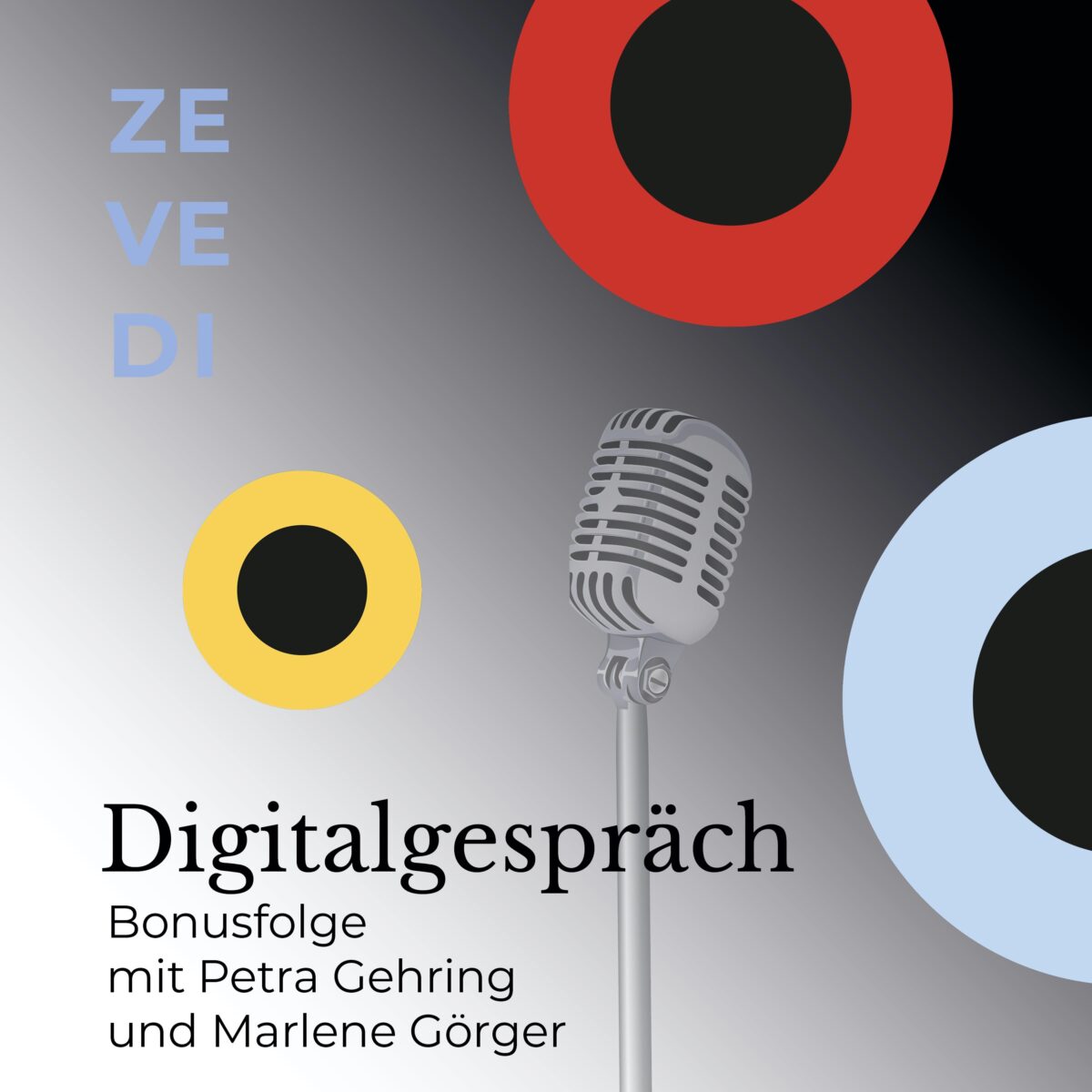
The first Digitalgespräch was broadcasted on May 26, 2021. Three years and 50 episodes later, the podcast has established itself as a space for open and scientifically informed discourse on topics relating to “digitality”. To mark this small anniversary, we would like to pause for a moment and reflect – which is why the two hosts of Digitalgespräch, Petra Gehring and Marlene Görger, have switched sides for this episode.
The aim of the Digitalgespräch is to shine a spotlight on complex fields of action so that “the fog of big buzzwords clears”. The method: Gathering specific knowledge from various fields of work and research perspectives in discussions with experts and slowly putting the pieces together. In this way, many diverse facets of the digital came onto the agenda: smart contracts, digital forensics, the restoration of digital works of art, the handling of sensitive research data or mourning and dying in the digital age.
Considering the complex field of the “digital”, is a picture beginning to emerge, a connection, a coherent insight? Or is the number of pieces growing faster than it is possible to put them together? In the bonus episode, the two makers talk to the two ZEVEDI science editors Eneia Dragomir and Konstantin Schönfelder in the small recording studio in Darmstadt. After 50 episodes of Digitalgespräch, where has the fog lifted and where did we hear about things that may only come to the attention of a wider public in the future? What went well, what didn’t go so well and what can we expect from the next 50 episodes?
Marlene Görger is a physicist and philosopher of technology and has been working at the Centre Responsible Digitality since 2020. Petra Gehring is Professor of Philosophy at the Technical University of Darmstadt and Scientific Director of the Center.
